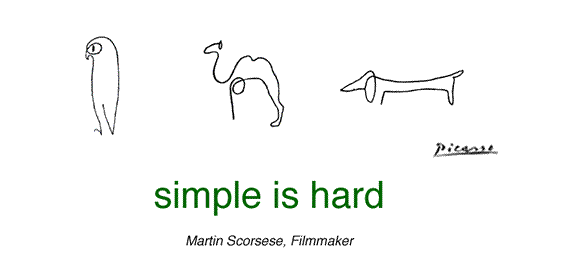This past week, I was fortunate to return to the speaking circuit for the first time in 2024. Whenever I get to speak to a group of my HR peers, my bucket is instantly filled. I never take it for granted. As soon as the obligatory speaker introduction ends, I can hit the first slide, and time seems to disappear.
I can feel the energy of the room ramp up when I introduce a few of the concepts I wanted to cover during my time. You see, I believe in and have practiced a stripped-down version of HR throughout my career. When I began practicing several decades ago, it wasn’t even called Human Resources it was Personnel. What was interesting was the old name of the field was a more accurate description of how most of the work was done. It was impersonal distant and heavily process-driven.
People are probably reading this and screaming that little has changed. That may be true in pockets or in companies that don’t value HR. I hate to hear that. I can’t tell you how many times people have come up to me after presentations sharing that they are faced with roles that still value the Personnel approach. Interestingly enough, there is this constant push to rename and rebrand the profession yet again. Instead of focusing on doing good work with people, we’re worried about what we’re called as an industry. I really am not concerned with what HR is or isn’t called as long as we try something that works.
Great HR is best when it is simplified. When we strip back the layers of the muck that have been built in over the years we make true progress. We thought our purpose had been to continue to build system upon system, process upon process, and policy upon policy. The more we wrote and implemented, we assured ourselves that our work and relationships with people would go smoothly. We have tricked ourselves into believing that we can have the perfect model with a set number of prescriptive steps to refer to for any situation we face.
There are still speakers, books, blogs, and podcasts that propose this ineffective and archaic belief system. Isn’t it ironic that if we only needed one true system then there wouldn’t be the need for any others? Have you stepped back to consider that?

Simplifying HR is needed because people are complicated. Each individual on this planet is unique. They can’t be, and shouldn’t be, crammed into a box of any sort in order to comply and conform. But, as Martin Scorcese so aptly stated, “Simple is hard.” You think it would be just the opposite. However, creating more and more and more layers of do’s and don’ts (mainly don’ts if we were honest) is easy. Having the discipline to keep things simple and not allow the layer building to occur takes considerably more effort.
The key to understanding here though is this – Keeping HR simple allows you and your employees to thrive. You have to trust me that you unleash more of the inherent talent people want to bring to work if you focus on allowing them to perform. How that looks where you work is up to you.
This is the baseline message of almost every talk I give. I’m out to deconstruct the past in order to build up the profession. Pulling the layers back and eliminating them reveals amazing people who have been there all the time. We just haven’t seen them because we’ve been lulled to sleep doing work building matrixes.
This week find one thing to strip back. Just one. The next week find two to three more and so on. Have faith and know that simplified HR can work for you. Taking these steps will be far more impactful than building the next great initiative. Enable the people you have working at your company to perform. You’ll find when you do this, they will.
